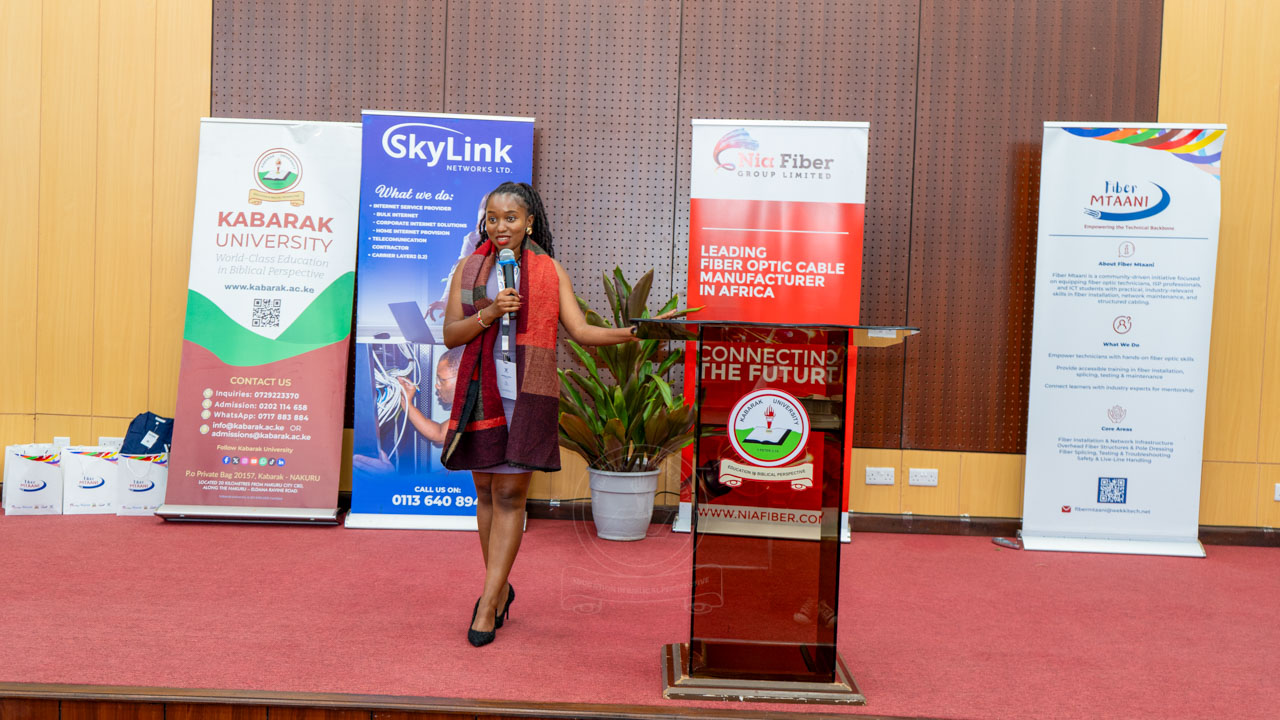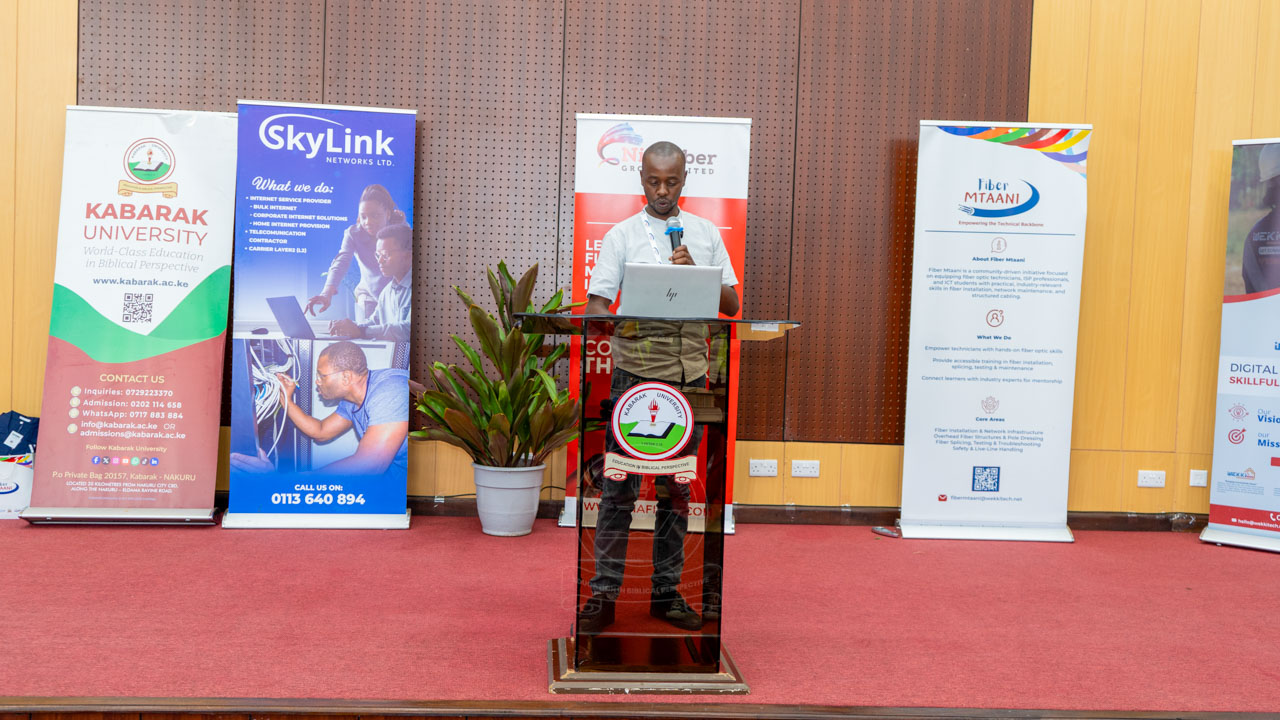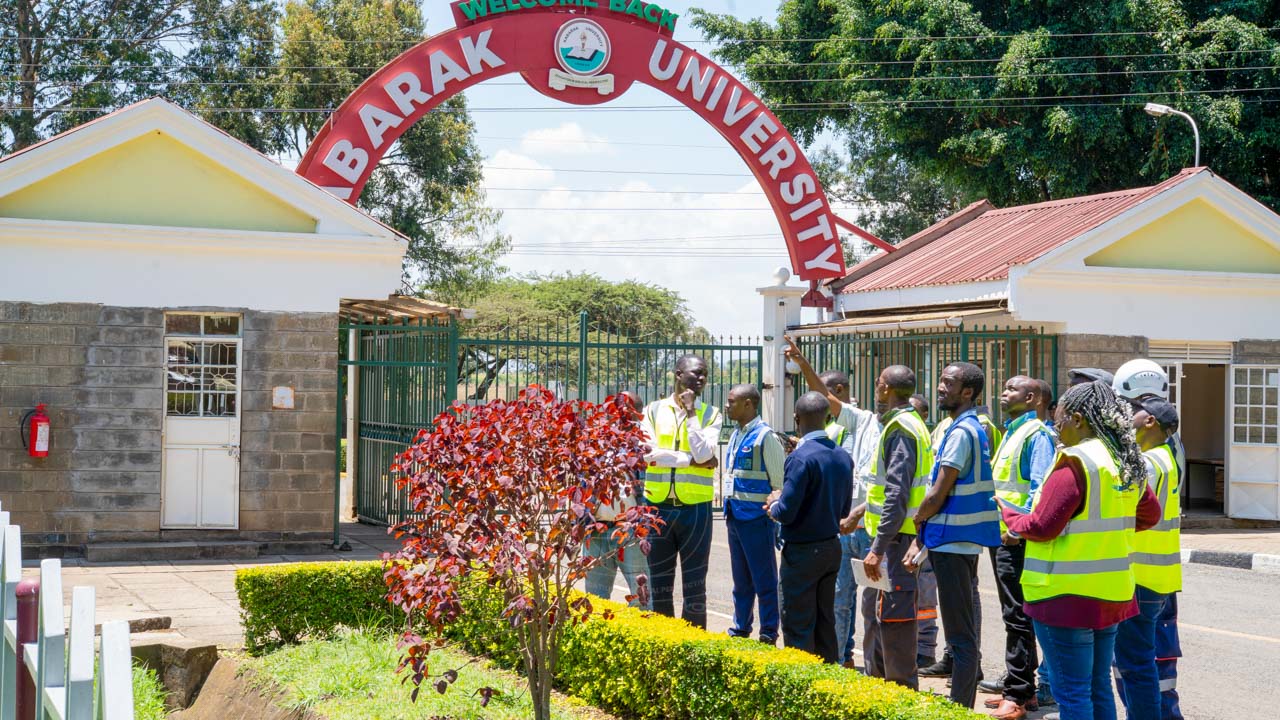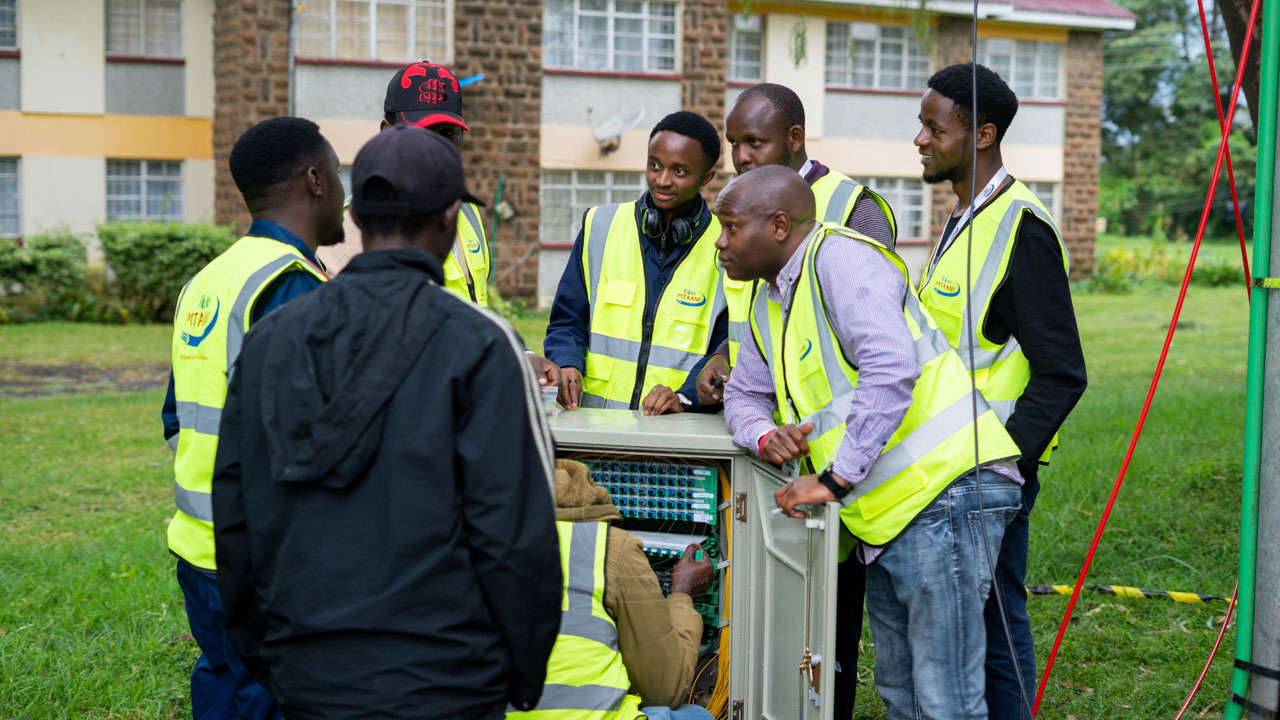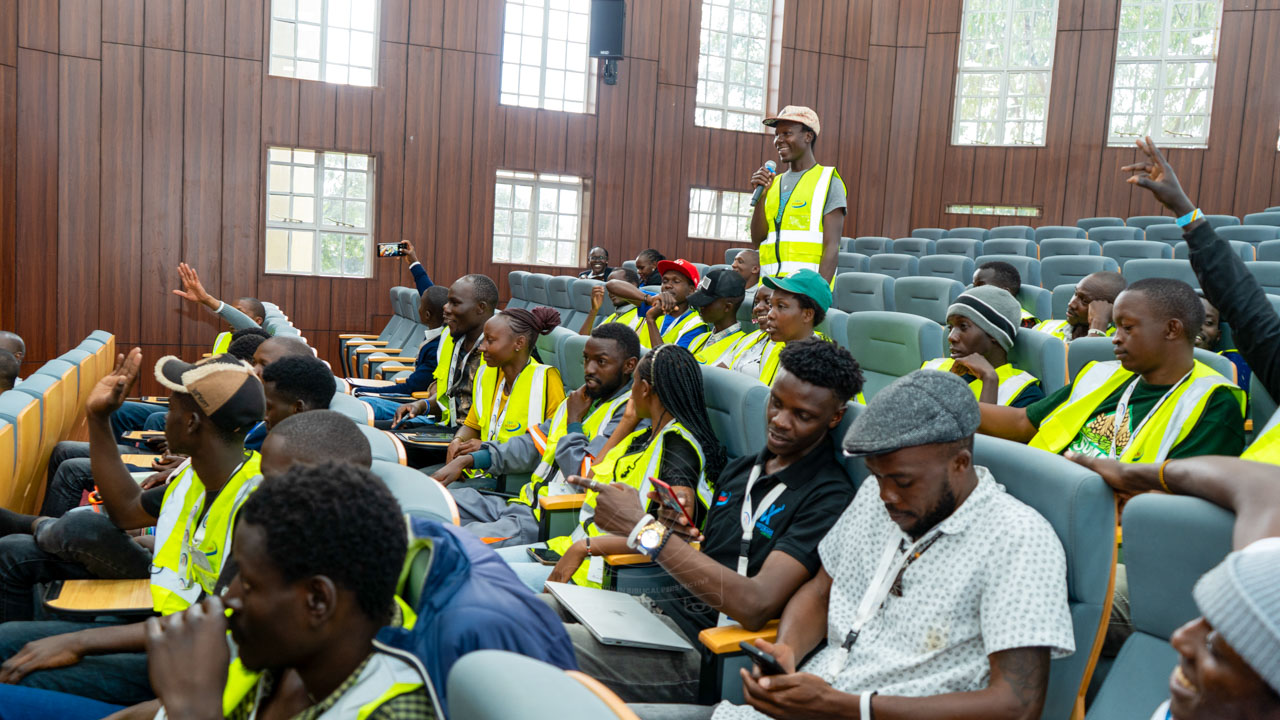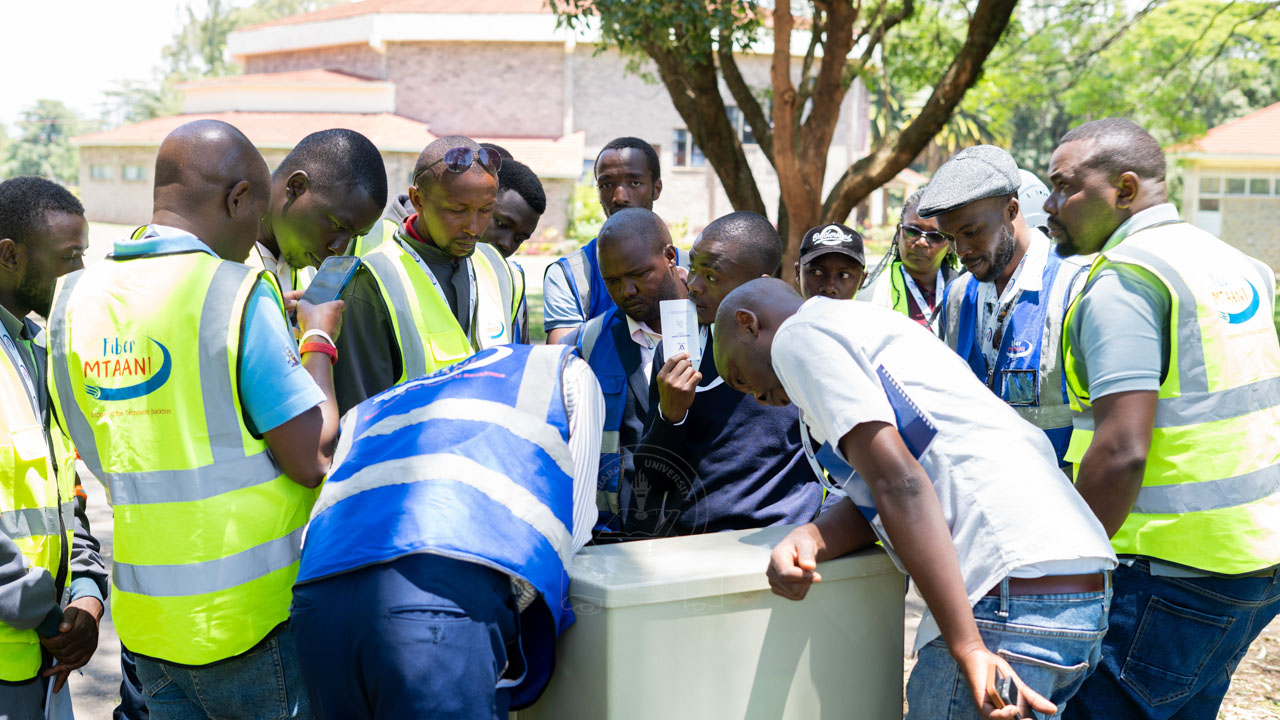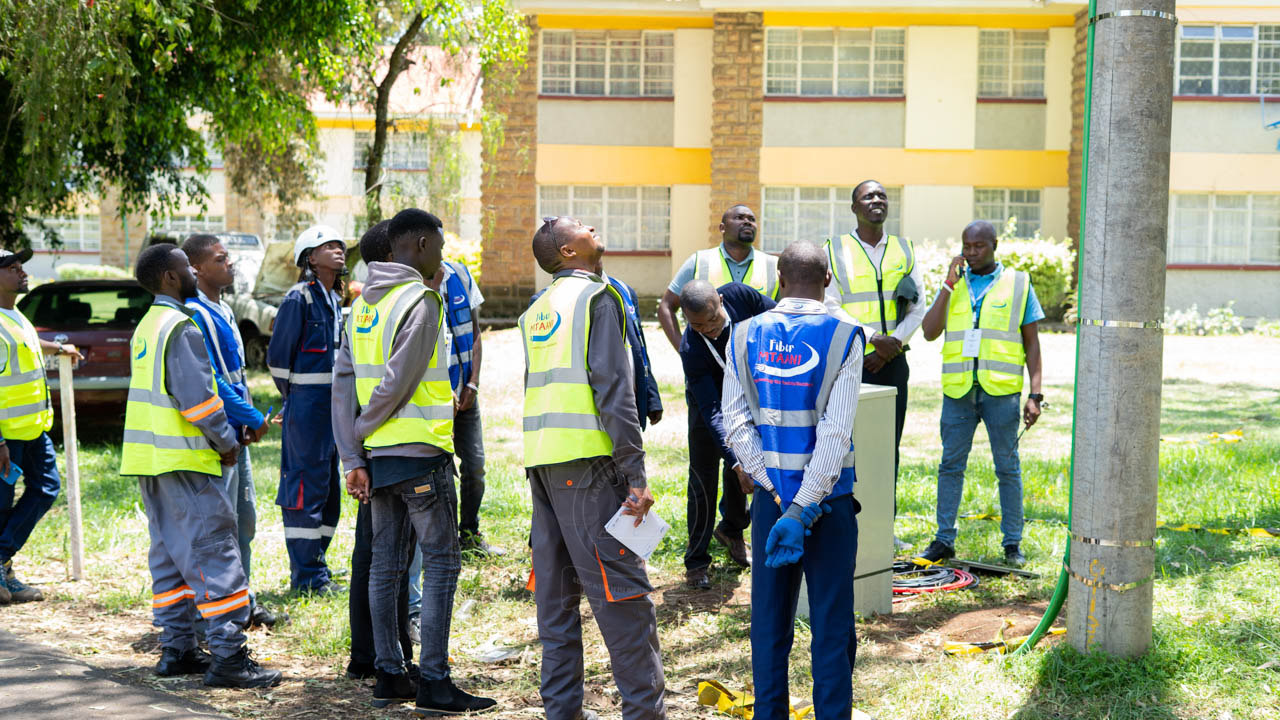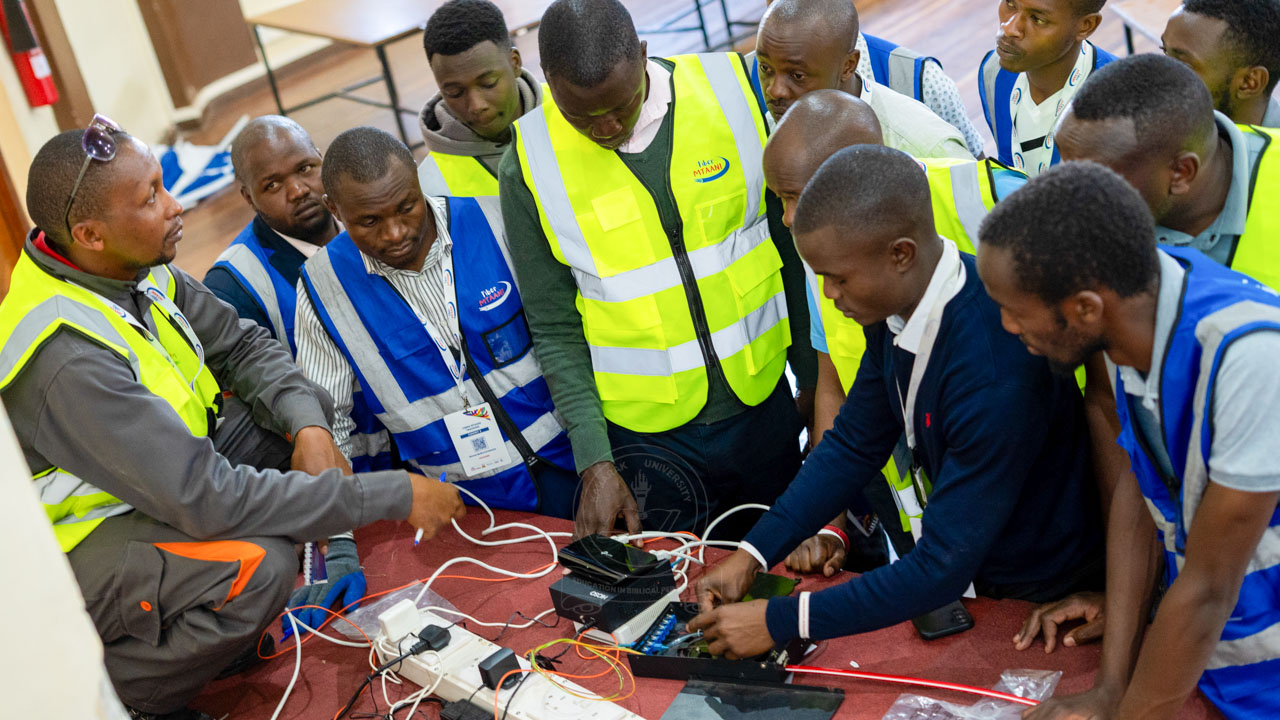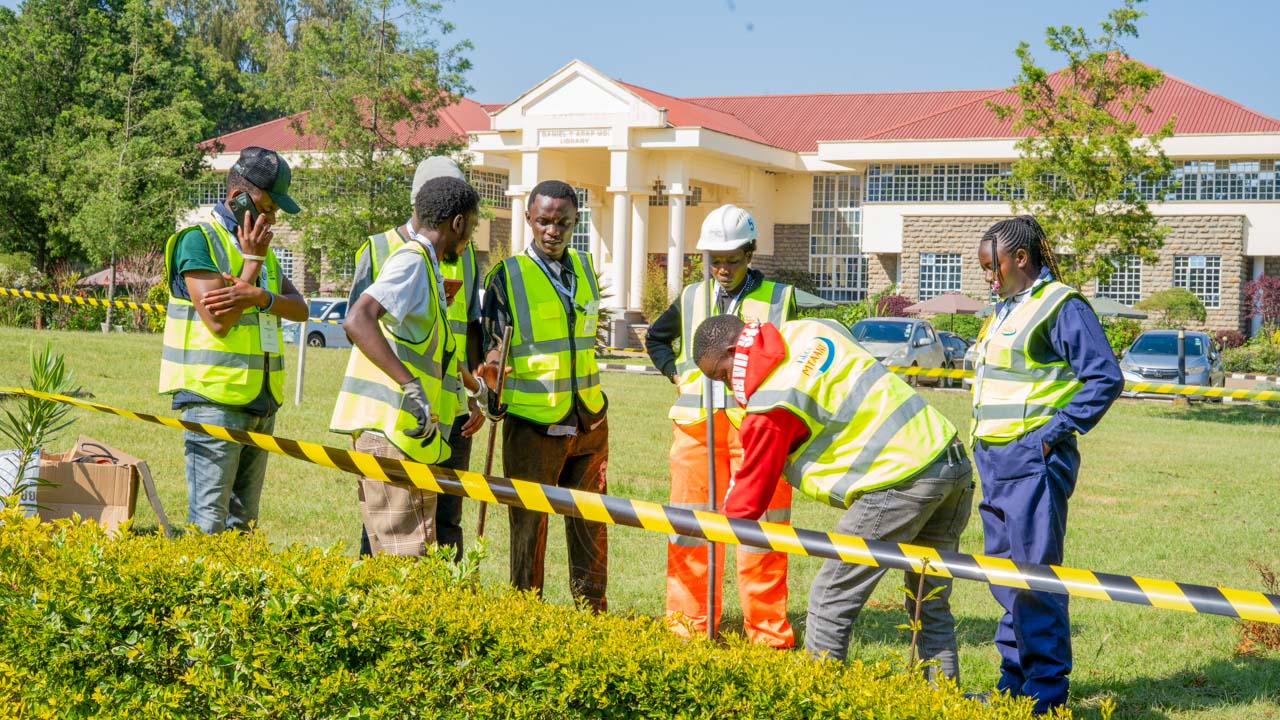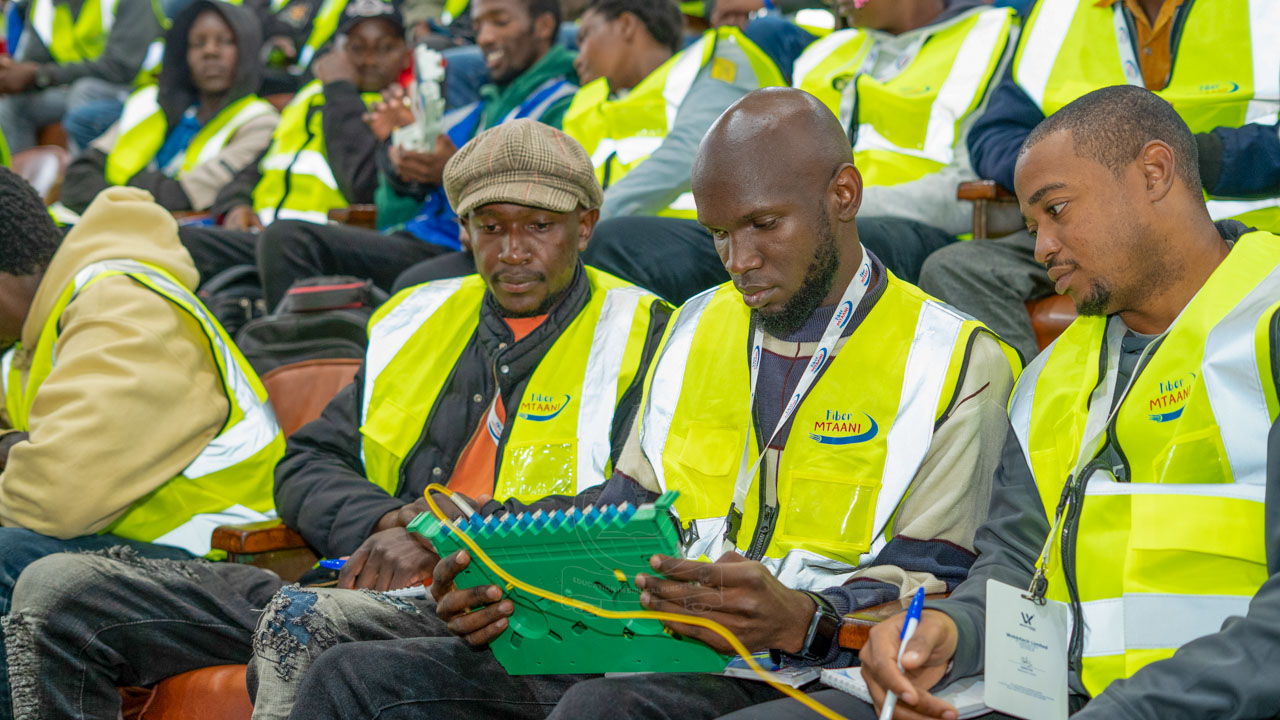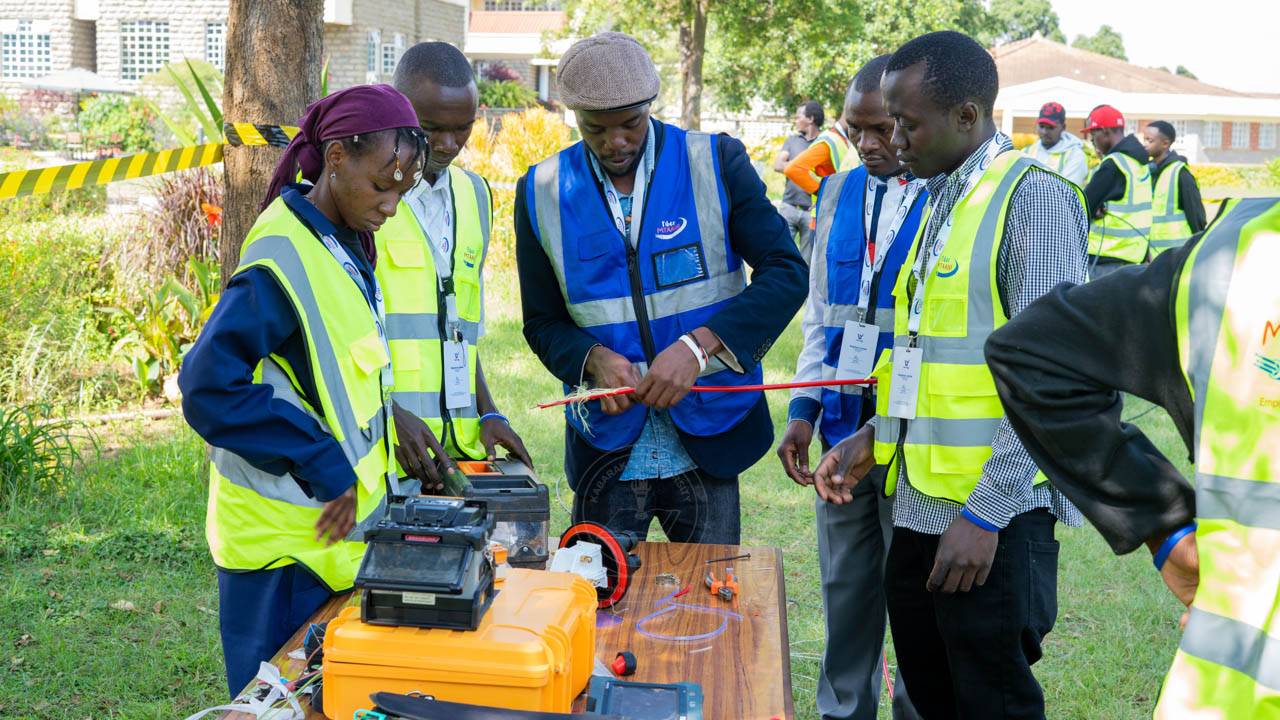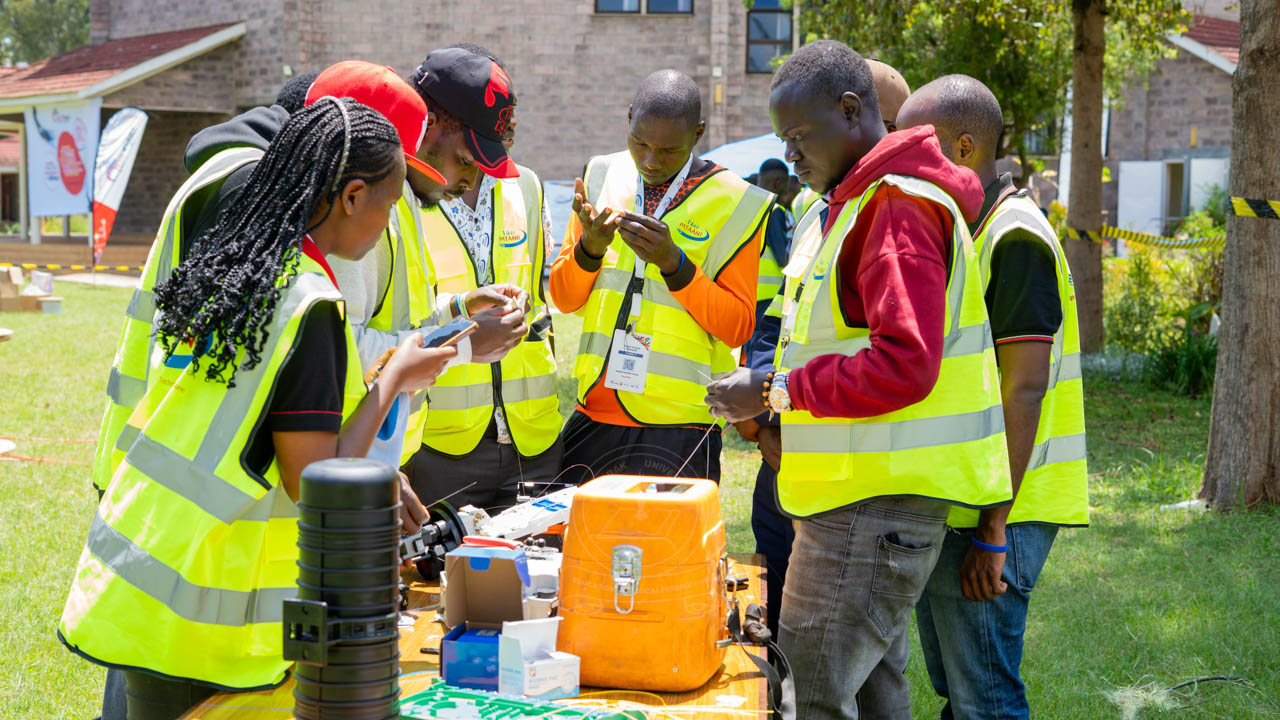Kabarak University, in collaboration with Wekkitech, Nia Fiber, Fiber Mtaani, and Skylink Networks Ltd, recently hosted an intensive five-day hands-on training program designed to bridge the gap between classroom theory and real-world practice for students pursuing a BSc in Telecommunication.
This transformative initiative focused on the design, installation, and maintenance of fiber network systems, placing special emphasis on safety practices and professional industry standards. With state-of-the-art equipment provided by our industry partners, students gained valuable exposure to the tools and technologies that drive today s digital connectivity.
The training gave participants the chance to go beyond theoretical knowledge and immerse themselves in practical fieldwork. Students learned to climb telecommunication poles safely, splice fiber cables with precision, and troubleshoot live network issues. They engaged in underground trenching simulations, Fiber-to-the-Home (FTTH) installations, and aerial cabling skills that are often overlooked in traditional academic programs but highly demanded in the job market.
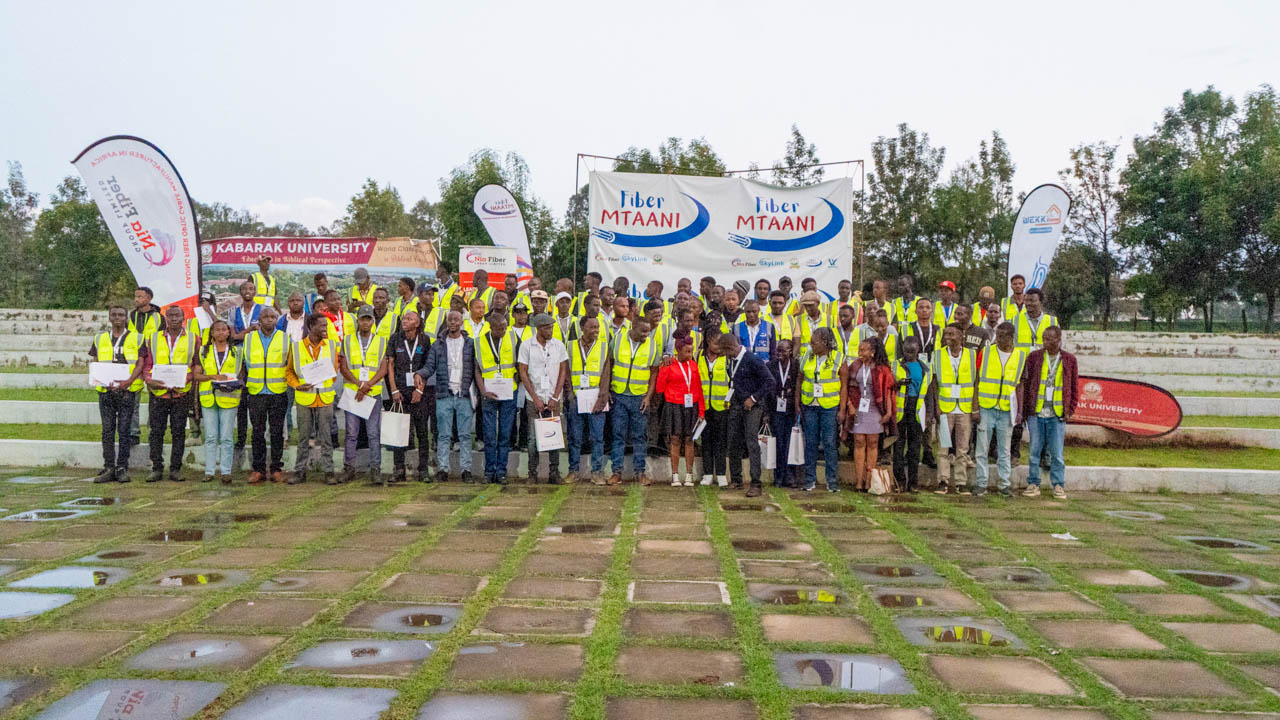
As one trainee expressed, I thought I understood fiber from my coursework, but handling real cables and splicing them myself completely changed my perspective. Now I feel ready to work in the field.
The Fiber Mtaani initiative, launched in March 2025 by Wekkitech with the support of the Internet Society Foundation, has rapidly grown into one of Kenya s most impactful field-based fiber training programs. By hosting Cohort 2 at Kabarak University, the program created a vibrant environment where students interacted directly with experienced engineers and network specialists. Industry leaders including Nia Fiber and Skylink mentored participants, sharing not only technical skills but also career insights into the rapidly expanding world of fiber optic technology.
The presence of senior executives, including Skylink Networks CEO Kenneth Koech, underscored the industry s strong demand for graduates with practical, job-ready expertise.
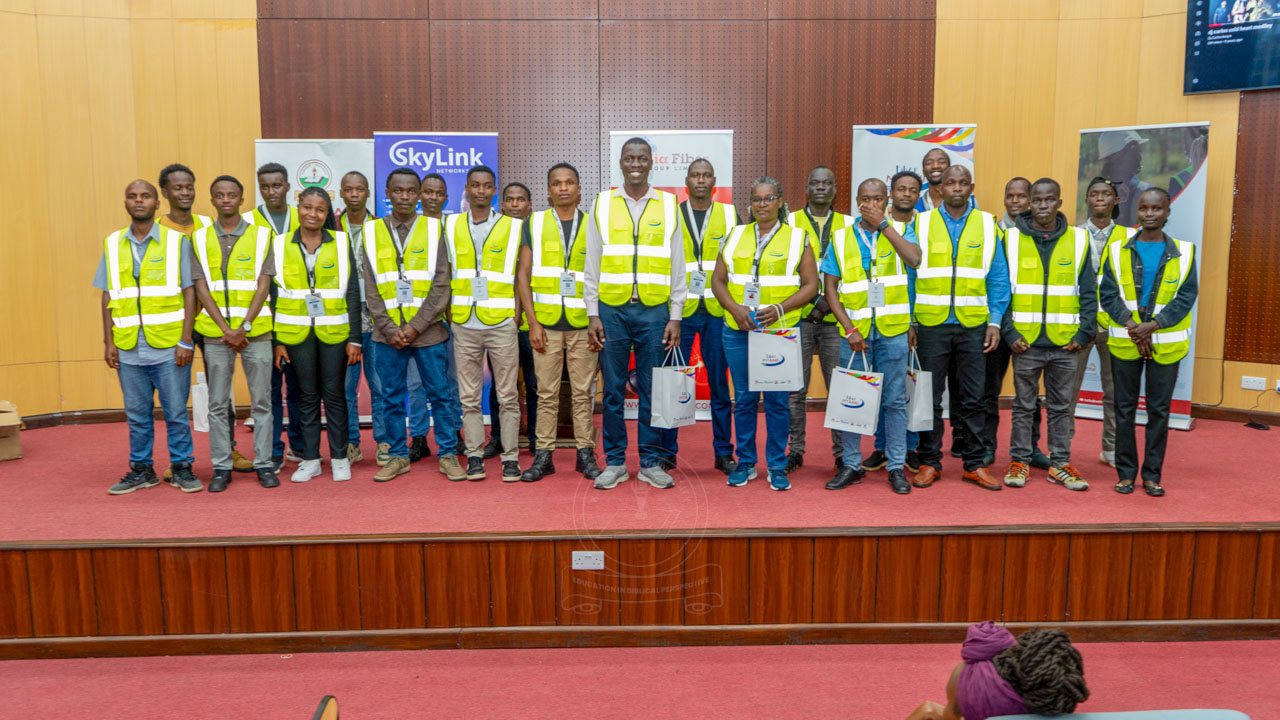
For Kabarak University, this partnership is more than just a training program it is a bold step in reinforcing our commitment to producing industry-ready graduates. Our students and faculty now have access to fiber optic tools and equipment that are rarely available in traditional university settings, elevating both teaching and research capacity.
This collaboration reflects our vision to integrate academic learning with hands-on, industry-driven experience. By doing so, we ensure our graduates are equipped with the competencies that will position them as key players in Kenya s digital future.
As the Fiber Mtaani movement grows, future cohorts will work toward nationally recognized certification through Kenya s National Industrial Training Authority (NITA), as well as international accreditation by the Fiber Optic Association (FOA). Such milestones will give our students credentials respected not only in Kenya but across the globe.
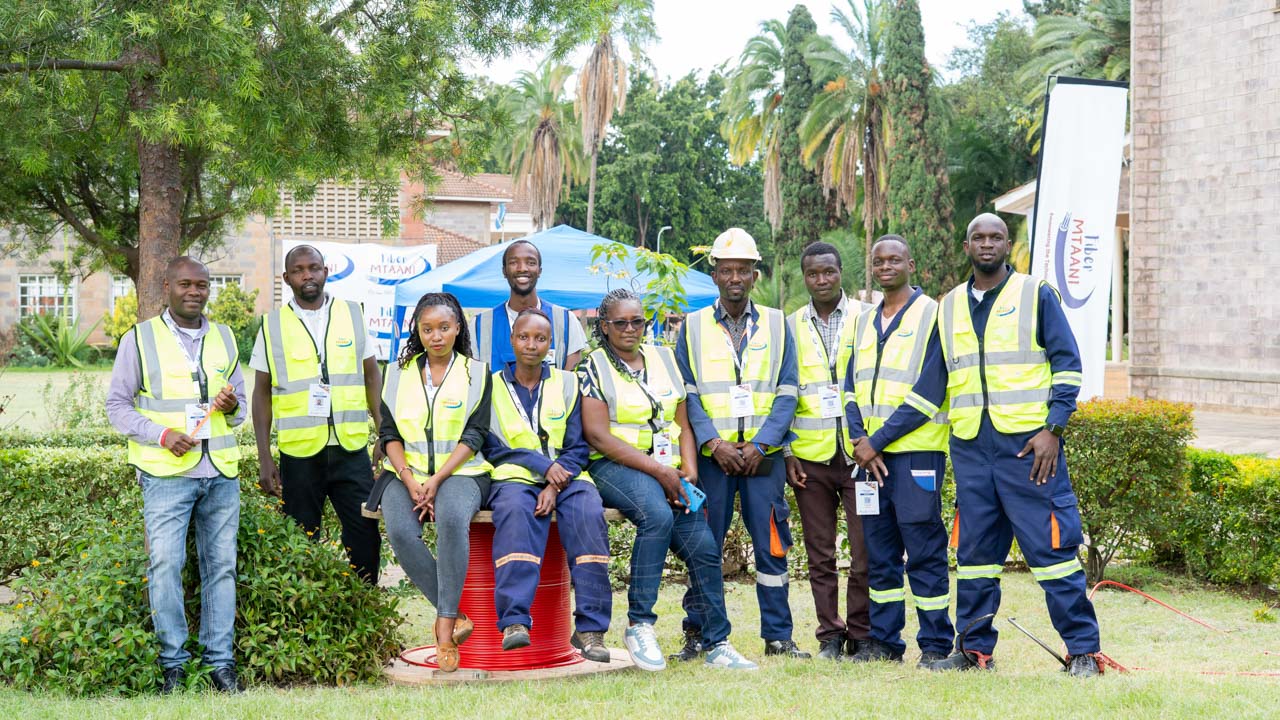
In an era where artificial intelligence and automation are reshaping industries, one fact remains clear: fiber deployment and maintenance require skilled human expertise. This makes fiber training one of the most future-proof investments for students, and Kabarak University is proud to be at the forefront of this initiative.
The motto of this program Fiber Mtaani, Siku Zombo (Fiber Always, Everywhere) captures the essence of lifelong learning and resilience. It represents a commitment to building Kenya s digital backbone one connection at a time.
At Kabarak University, we are proud to be part of this transformative journey, preparing our students not just for jobs, but for impactful careers that will define the future of connectivity in Kenya and beyond.



